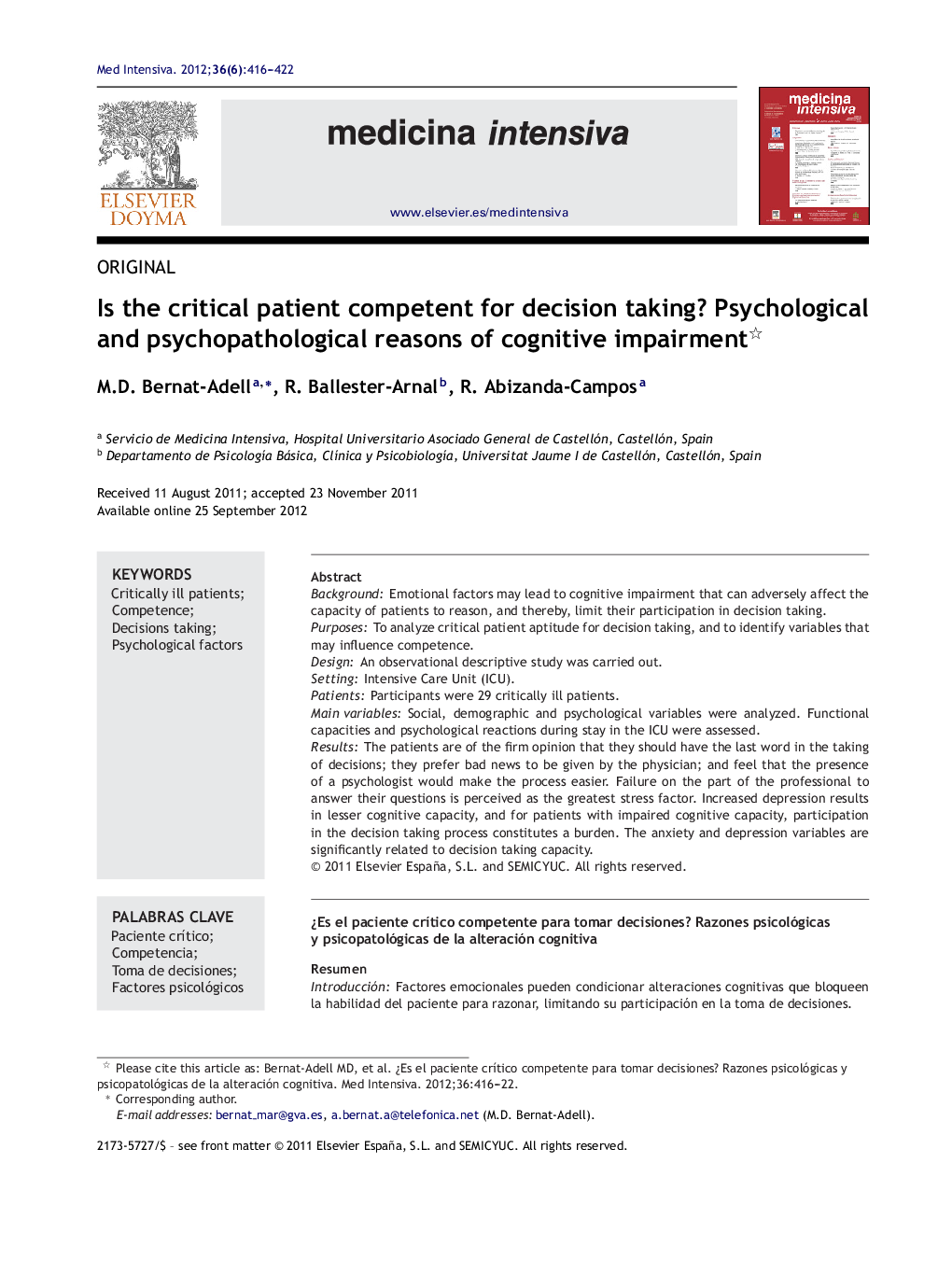| کد مقاله | کد نشریه | سال انتشار | مقاله انگلیسی | نسخه تمام متن |
|---|---|---|---|---|
| 3114266 | 1192507 | 2012 | 7 صفحه PDF | دانلود رایگان |

BackgroundEmotional factors may lead to cognitive impairment that can adversely affect the capacity of patients to reason, and thereby, limit their participation in decision taking.PurposesTo analyze critical patient aptitude for decision taking, and to identify variables that may influence competence.DesignAn observational descriptive study was carried out.SettingIntensive Care Unit (ICU).PatientsParticipants were 29 critically ill patients.Main variablesSocial, demographic and psychological variables were analyzed. Functional capacities and psychological reactions during stay in the ICU were assessed.ResultsThe patients are of the firm opinion that they should have the last word in the taking of decisions; they prefer bad news to be given by the physician; and feel that the presence of a psychologist would make the process easier. Failure on the part of the professional to answer their questions is perceived as the greatest stress factor. Increased depression results in lesser cognitive capacity, and for patients with impaired cognitive capacity, participation in the decision taking process constitutes a burden. The anxiety and depression variables are significantly related to decision taking capacity.
ResumenIntroducciónFactores emocionales pueden condicionar alteraciones cognitivas que bloqueen la habilidad del paciente para razonar, limitando su participación en la toma de decisiones.ObjetivosEvaluar la disposición del paciente crítico para tomar decisiones e identificar qué variables pueden influir en su competencia.DiseñoEstudio observacional descriptivo.ÁmbitoUnidad de Cuidados Intensivos.Pacientes29 pacientes críticos.VariablesSe analizaron variables sociodemográficas y psicológicas. Se evaluó la capacidad funcional y la reacción psicológica durante la estancia en UCI.ResultadosMuestran que los pacientes están totalmente de acuerdo en que la última palabra a la hora de tomar decisiones corresponde a ellos mismos, prefieren que una mala noticia sea trasmitida por el médico y dicen que la presencia del psicólogo facilitaría el proceso. Que los profesionales no respondan a sus preguntas es el factor de mayor estrés. A mayor nivel de depresión resulta una menor capacidad cognitiva, y para los pacientes con menor capacidad cognitiva, participar en la toma de decisiones supone una sobrecarga. Las variables ansiedad y depresión se relacionan significativamente con la capacidad para tomar decisiones.
Journal: Medicina Intensiva (English Edition) - Volume 36, Issue 6, August–September 2012, Pages 416–422